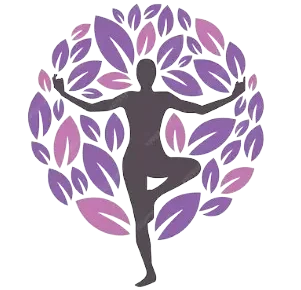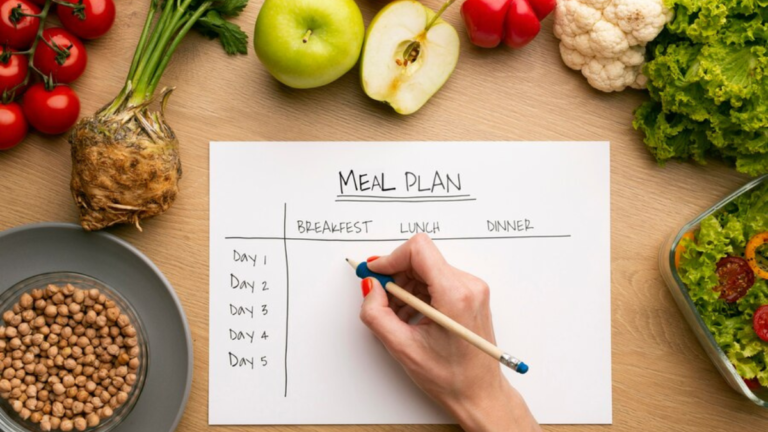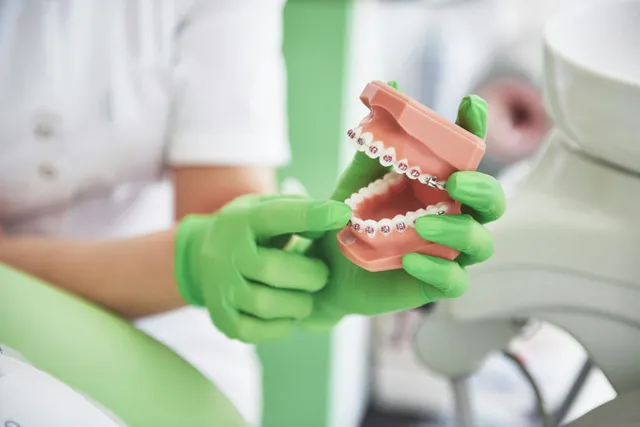What Vitamin Deficiency Causes You To Feel Cold? Top 4 Key Nutrients
Introduction to What Vitamin Deficiency Causes You To Feel Cold?
To have a low body temperature most of the time can be quite upsetting and at times are even considered alarming and we start thinking that “What Vitamin Deficiency Causes You To Feel Cold all the time? One may experience coldness due to many different causes including Raynaud’s, hypothesis disease, and hypertension just to name but a few. But a vitamin deficiency may also be the root of the problem, and that is often not taken into consideration. This article will discuss What Vitamin Deficiency Causes You To Feel Cold? Let’s review One or the other vitamins, and their role in maintaining body temperature, and possible remedies for the deficiency.
Understanding Body Temperature Regulation
What Vitamin Deficiency Causes You To Feel Cold? Before answering this question, let’s look at how the body controls temperature with a particular focus on the hypothalamus, which is like the car’s thermostat. When the body loses heat, the hypothalamus initiates processes to produce heat, namely shivering and redirection of warm blood flow to the trunk to effect vasoconstriction.
Many of them regulate metabolic rate and are involved in behaviours such as seeking warmth. B vitamins and others including iron or D facilitate these processes; their lack may disrupt temperature regulation, one feeling continually cold. Hence, eating a balanced diet with adequate vitamins is crucial for having effective functioning of these mechanisms as well as health in general.
Vitamins are crucial for regulating body temperature and acting as heat shields.
Before we know that how vitamins regulate body temperature we also need to know what vitamin deficiency causes you to feel cold. Vitamin is incredibly important in the normal functioning of the human body, and one of the critical roles is the ability to control temperature. Some of their important functions include sustaining adequate flow, participation in energy metabolism, and regulating metabolism. The body requires a number of nutrients to generate and retain heat and if the body is deprived of these essential nutrients it is likely to lose its ability to produce heat.
As a result, they suffer from the cold, and it seems as if nothing can warm them up. For instance, Vitamin B12 and iron are two critical nutrients that play a role in the synthesis of healthy red blood cells that transport food, oxygen, and nutrients to body tissues. Lack of these vitamins may affect blood flow and therefore reduced ability to transport heat at appropriate conditions. By now you must have got the answer of the question what vitamin deficiency causes you to feel cold?
Vitamin D, which is involved in the maintenance of bone health and immune response, is also involved in the metabolic activities that are related to the production of heat. An individual may experience low energy levels and metabolic slowing which contribute to the more general perceptions of coldness. Awareness of these roles provides the rationale for the consumption of foods rich in necessary vitamins to facilitate the vital function of nutrient maintenance, including temperature management.
Concerning deficiencies, changes in diets or intake of supplements can help counter the lack of efficiency in modulating temperature, thus maintaining the health of the entire body and ensuring that it does not deteriorate.
What Vitamin Deficiency Causes You To Feel Cold?
Vitamin B12:
Among all the vitamin deficiencies, one of the common and frequently mentioned reasons What Vitamin Deficiency Causes You To Feel Cold is Vitamin B12. A water-soluble vitamin that is important in the formation of blood platelets which are used in the coagulation process in the body. In case the body does not have enough Vitamin B12, then it has a problem of producing red blood cells, a disease which is referred to as anaemia.
Anaemia is a medical condition whereby there is insufficient number or production of health to maintain a healthy body function. , and this can lead to symptoms such as fatigue, weakness and pale skin due to lack of adequate oxygen supply to the cells.
However, circulation is also impaired in anaemia because the body may be unable to effectively pump blood to some extremities such as the hands and feet. As mentioned, circulation in these areas is weak, which directly affects the areas that receive less warm blood and so aggravate the cold feeling.
Hence, it becomes important that Vitamin B12 Deficiency is treated in addition to anaemia treatment to ensure that there is proper circulation and a stopping of the constant coldness as lightheadedness associated with the Vitamin B12 deficiency.
Sources of Vitamin B12:
- Meat, fish, poultry, eggs and other food items of animal origin means.
- Cereals with extra nutrients and those plant milk which have added nutrients.
Symptoms of Vitamin B12 Deficiency:
- Fatigue and weakness.
- Pale or jaundiced skin.
- Chest pain and difficulty in breathing accompanied by dizziness.
- These symptoms include policy weakness, tingling and numbness in both the hands and feet.
Iron
Iron is not a vitamin, however, deficiency of it together with vitamin B12 leads to similar symptoms as vitamin B12 deficiency, including coldness. Iron is a component in haemoglobin which is a protein that is found in red blood cells with the primary function of transporting oxygen. Should iron intake be inadequate, sufficient healthy red blood cells are not manufactured, causing anaemia and temperature fluctuations.
Sources of Iron:
- Red meat, beef, pork and frozen poultry.
- Seafood.
- The types of foods that are rich in iron include beans, dark green leafy vegetables, and iron-fortified cereals.
Symptoms of Iron Deficiency:
- Extreme fatigue.
- Weakness.
- Pale skin.
- A person with acute chest pain and shortness of breath.
Vitamin D
Another what vitamin deficiency causes you to feel cold, is the Vitamin D deficiency. This Vitamin is useful for formation of bones, strengthening of the immune system and also playing a pivotal role in regulating the mood. New findings indicate that vitamin D has an effect on thermoregulation within the human body. It has been found that poor levels of this vitamin results in one feeling cold, tired, and experiencing several other symptoms.
Sources of Vitamin D:
- Sunlight exposure.
- Cereals, whole grain products, omega 3 fatty acids which are available in fatty fish like salmon, mackerel and tuna fish.
- Products such as milk, and OJ together with break-fast cereals.
Symptoms of Vitamin D Deficiency:
- Joint and bone aches and muscle cramps.
- Mood changes, including depression.
- Fatigue and tiredness.
Vitamin C
You probably would want to note that Vitamin C is very good in boosting your immune system, but failing this vitamin makes you develop a cold. However, Vitamin C is useful in creating collagen which is relevant in the formation of blood vessels. Poor formation of blood vessels results in low blood circulation and hence the coldness feels to be in the body all the time. The another what vitamin deficiency causes you to feel cold is Vitamin C.
Sources of Vitamin C:
- Vitamin C-rich foods like oranges, lemons and grapefruits are allowed.
- Strawberries, kiwi, and bell peppers.
- Cruciferous vegetables such as broccoli and Brussels sprout and other veggies like tomatoes.
Symptoms of Vitamin C Deficiency:
- Ceaseless sicknesses.
- Gum infection and sad injury recovering.
- Dry, separating hair and brutal, dry skin.
Tending to absences of supplement
Understanding What Vitamin Deficiency Causes You To Feel Cold is the most essential stage in settling the issue. The following are a couple of strategies to fight these needs and further foster your overall flourishing.
Diet and Food
The best strategy for hindering or addressing absences of supplement is through a sensible eating routine. Promise you eat different food sources copious in central supplements and minerals. If you suspect a need, consider coordinating a more noteworthy measure of the going with food sources into your eating schedule:
- Eat an Alternate Eating routine: Unite a considerable number of food sources to cover each central enhancement.
- Perceive Anticipated Needs: In case you suspect a deficiency, change your eating routine similarly by including unequivocal enhancement rich food assortments.
Wellsprings of Key Supplements and Minerals:
- Vitamin B12: Found in meat, fish, poultry, eggs, and dairy things.
- Iron: Open in red meat, fish, beans, and faint serving of mixed greens.
- Vitamin D: Found in oily fish, propped food assortments, and can be mixed through sensible sun receptiveness.
- L-ascorbic corrosive/Vitamin C: Found in citrus normal items, strawberries, ringer peppers, and broccoli.
Supplements
Occasionally, dietary changes alone may not be sufficient to address What Vitamin Deficiency Causes You To Feel Cold? Improvements can be a strong technique for ensuring you’re getting the significant enhancements. Regardless, it’s fundamental to converse with a clinical consideration provider before starting any new improvement routine to avoid potential correspondences and optional impacts.
- Right when Dietary Changes Aren’t Adequate: A portion of the time, diet alone may not take care of business to meet your healthy necessities.
- Convincing Supplementation: Upgrades can help with promising you get the fundamental enhancements.
- Counsel Clinical benefits Providers: Reliably talk with a clinical consideration provider preceding starting any new improvement routine to avoid likely joint efforts and optional impacts.
Lifestyle Changes
Despite diet and improvements, certain lifestyle changes can help with additional creating supplement levels and all things considered:
Common Action:
- Further development stream.
- Facilitates impressions of crispness.
Adequate Rest:
- Huge for everyday prosperity.
- Impacts how your body controls temperature.
Stress The board:
- Continuous strain can debilitate central enhancements.
- Impacts your body’s ability to stay aware of temperature as a matter of fact.
When to consider for Clinical Advice
If constant vibes of liveliness propose a likely absence of supplement, it is urgent to search for clinical direction. Directing a clinical benefits provider thinks about escalated evaluation through blood tests to perceive insufficiencies and propose sensible treatments. Ignoring these secondary effects can provoke more serious unforeseen issues after some time, featuring the meaning of early mediation. By keeping an eye on deficiencies quickly, individuals can prevent crushing circumstances and advance better in everyday prosperity and flourishing.
Conclusion about What Vitamin Deficiency Causes You To Feel Cold?
Understanding What Vitamin Deficiency Causes You To Feel Cold is essential for watching out for this abnormal incidental effect. Vitamin B12, iron, Vitamin D, and L-ascorbic corrosive inadequacies are typical guilty parties that can influence your body’s ability to control temperature. By merging a good eating routine, considering upgrades, and clearing a path of life changes, you can additionally foster your supplement levels and by and large prosperity. Expecting aftereffects endure, feel free to clinical direction to promise you get the legitimate thought.
By staying taught and proactive, you can expect control over your prosperity and prevent the bother of feeling cold in view of What Vitamin Deficiency Causes You To Feel Cold. Remember, an especially upheld body is more ready to stay aware of ideal temperature and by and large.






